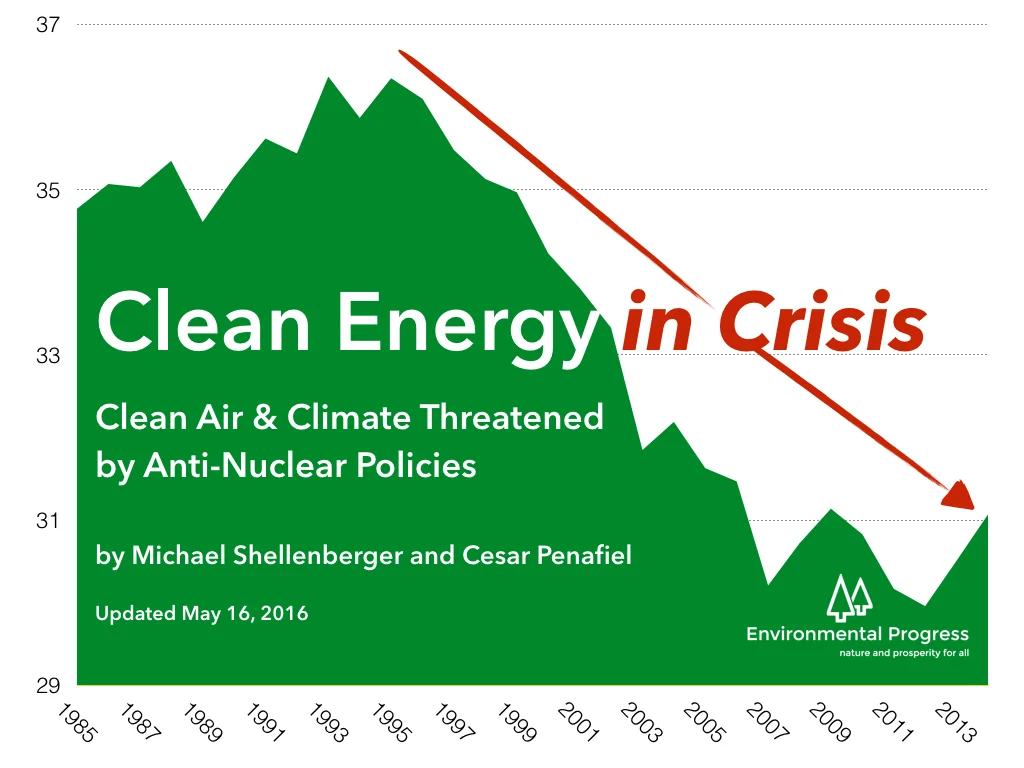Clean energy as a percentage of global electricity has been in decline for two decades. This is not just because fossil fuels are expanding more rapidly than clean energy, but also because the amount of electricity the world generates from nuclear energy has been on the decline. While solar and wind have grown significantly, they have not grown enough to make up for lost nuclear. Now, in a new analysis, EP finds that unless something changes, things are about to get much worse. In the US, 13 nuclear plants are at high-risk of closure within the next 24 months, and half of all U.S. plants are at risk of premature closure over the next decade and a half. If that happens, the resulting higher carbon emissions will wipe out 43 percent of the EPA’s planned Clean Power Plan reductions.
Read MoreMichael Shellenberger is an environmentalist.
He’s also an advocate for an energy source that many in the green movement deplore — nuclear power.
But that wasn’t always the case.
Shellenberger used to be a rabid anti-nuclear activist who, in his words, tried to “clog the toilet” to stall or shelf nuclear projects such as the Ward Valley radioactive waste dump in the eastern Mojave Desert.But in the face of the ramifications of a warming planet, the 44-year-old father of two has joined a number of greens such as climate scientist James Hansen calling for a reassessment of nuclear energy as the cleanest energy source to combat climate change.
For those who regard nuclear power as inherently dangerous in the wake of the 2011 accident in Fukushima, Japan, and the disaster at Chernobyl 30 years ago, advocating for more nuclear power amounts to almost a form of environmental heresy.
Read MoreTime is running out for Illinois policymakers to protect Illinois’ largest source of clean, low-carbon electricity. Four weeks ago over 60 climate scientists and conservationists wrote an open letter to Illinois lawmakers, urging swift and fair action.
Read MoreUtilities that own nuclear power plants are in serious financial trouble. While it is tempting to blame low natural gas prices and misplaced post-Fukushima jitters, nuclear’s troubles are rooted in regulatory capture – a capture that finds its genesis in the origins of the U.S. environmental movement. This capture is now threatening to bring this climate-friendly energy source to the brink.
Read More




